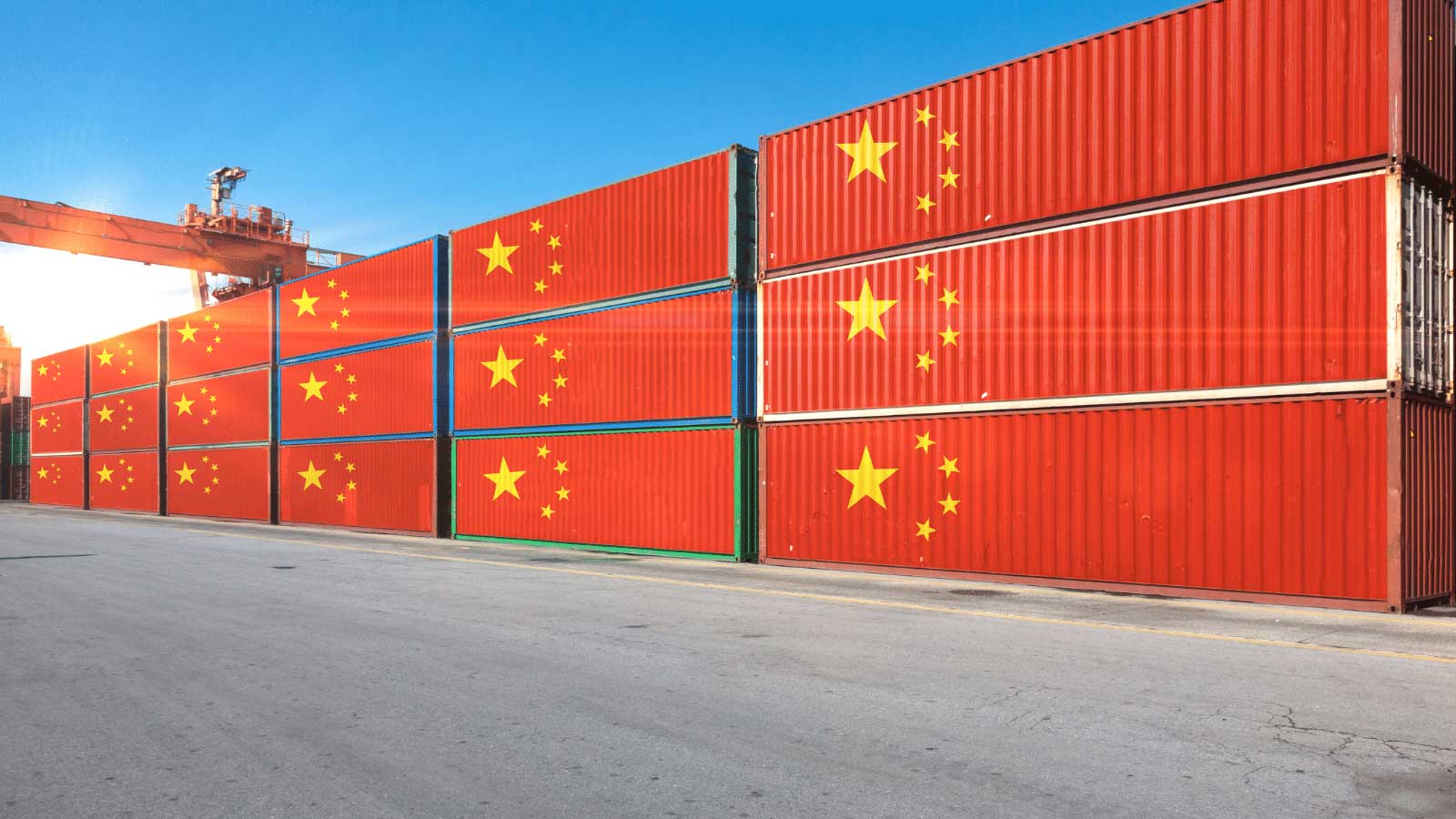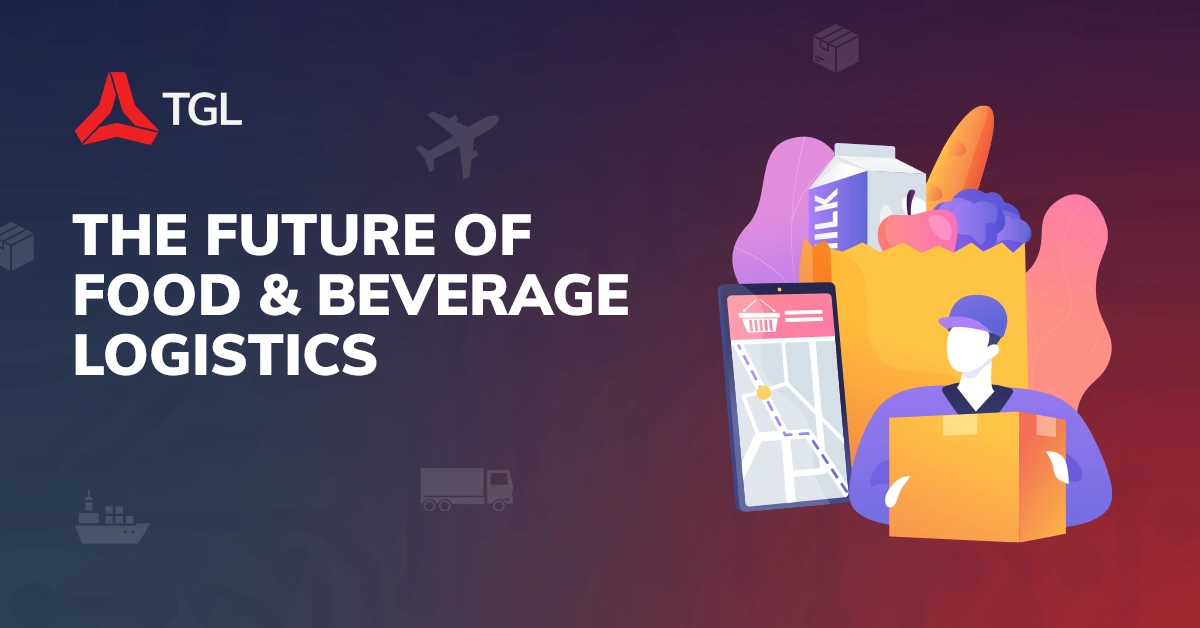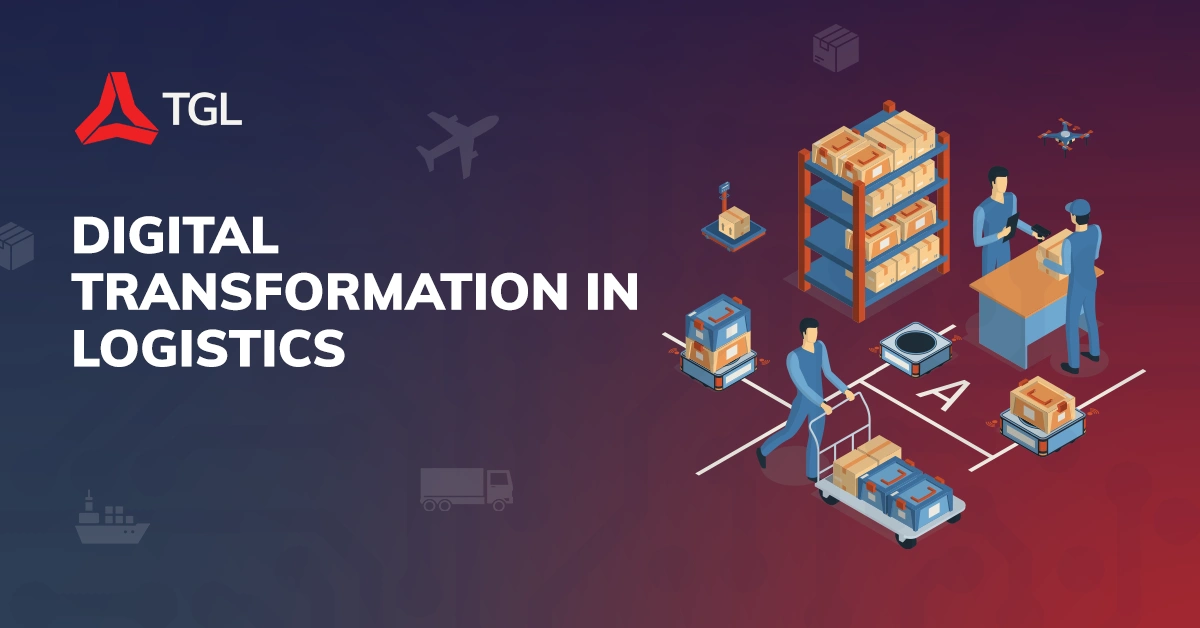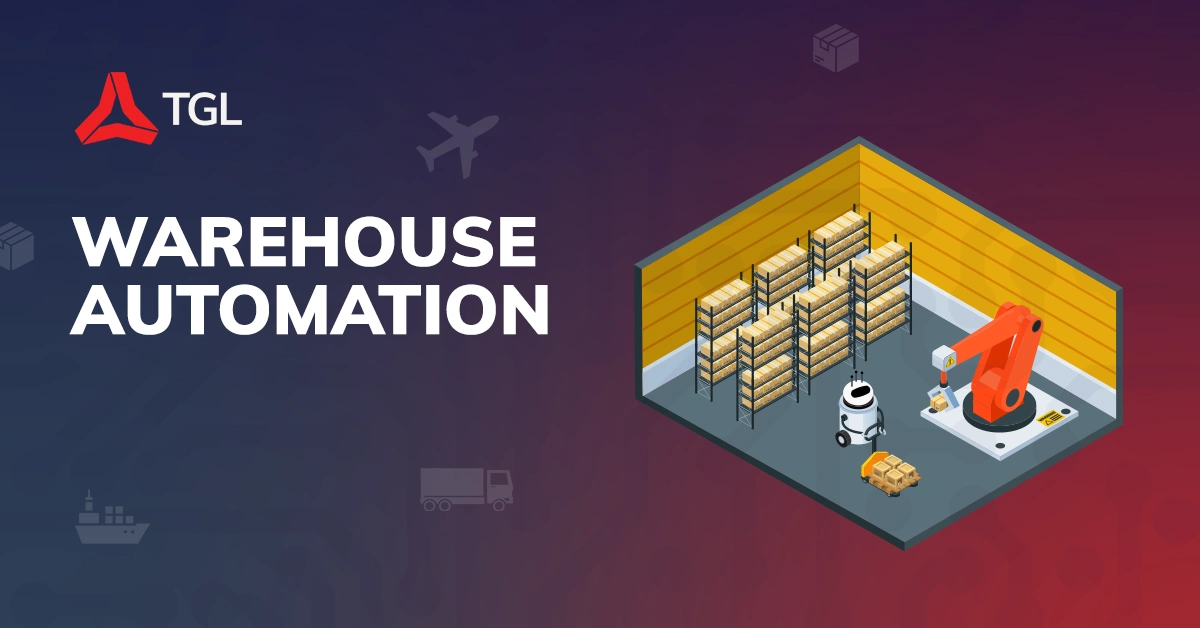Shipping from China to Australia | Pro Tips

China, as one of the world's main telecoms, industrial, and commercial goods manufacturing hubs, attracts businesses seeking to import lower-cost manufactured goods to Australia through its network of factories and major ports. China and Australia have extensive trading relations, notably after the implementation of the China-Australia Free Trade Agreement in 2015. This has given importers more freedom to source items from China and ship them to Australia. In recent years, Australia has imported more than $61 billion in merchandise per year, including:
- Building materials & tiles
- Telecommunications equipment
- Furniture and furnishings
- Computers & electronics
- Clothing
- Toys and games
- Solar Panels
- Sporting goods
- Industrial goods
Despite being close commercial partners for around 50 years, most businesses still encounter difficulties when transporting goods between China and Australia. When shipping between the two, your company must be aware of a few factors. This article should be of interest if you're trying to export goods from China to Australia for the first time or are looking for a simpler way to do so. You can find details on shipping by air and sea from China to Australia as well as tips on customs clearance.
Differences Between Freight Forwarders and Shipping Lines / Air Lines
Physical transportation of goods from one country to another is done by either shipping lines or airlines, sometimes both depending on how you CHOOSE to move your freight. These companies operate the vessels and aircraft required for the movement. Due to the sheer volume of goods being transported and the geographic coverage, these entities rely on a FREIGHT FORWARDER to be the intermediary between you the ultimate customer and them the actual carrier. When it comes to cargo and the regulatory requirements of each country around the world you can imagine the complexity and chaos that will be created if each importer were to deal directly with these carriers. Given their main aim is to fully load their vessels and air crafts and maximise margin their operational structure is designed only to facilitate that purpose most efficiently. This is also one of the key reasons why such companies fail miserably when trying to deal directly with the consumer. There are exceptions of course such as if you are LARGE enough with massive volumes and an in-house team to manage the process then dealing directly with these entities will make sense. However, the majority of the time this isn’t the case. In addition, you never have to interact with them. With all these being said shipping lines of late have been making a tremendous amount of money due to the macro realities of the last few years, so much so that they are purchasing large multinational freight forwarding companies to barge in on that space and grab market share. More interestingly they see this vertical expansion as part of their future growth plans. We at TGL have our doubts about this strategy however we can certainly understand why they have the desire to diversify especially given their current reality and business model are limited by the size of their fleet and the macroeconomic factors that they have no control over.
So, what is a freight forwarder?
The freight forwarder is an integral part of the shipping process. Because there are so many parties involved in moving an international shipment, dealing with each party would require a huge investment in time and coordination. So here lies the value of freight forwarders! We are the buffer between the fixed asset carriers mentioned above and you. You or your Chinese supplier can contact us, and we would plan, facilitate, and execute your shipments while you focus on your own business development. We work as a broker, coordinating with all carriers from the time cargo is picked up at suppliers’ warehouses until it is delivered to your door. As a broker we source the best options to move your freight and we are not stuck with only one provider which would happen if you were to go direct. We also help with navigating the regulatory side of international shipping ensuring that all paperwork is in order and clearance is done with Customs authorities. More importantly at TGL, we provide you with a real person to guide you throughout the process and keep you updated with progress. The final important point is we also make payments on your behalf to the physical carriers and Customs for the movement of your goods and bill you at the end of the shipment journey to make the whole process more efficient for you. If you were to deal with each party independently you would need to make payments or international transfers each step along the way. This would hinder the smooth flow of freight and make the whole process very cumbersome.
Most Common Incoterms for Shipping
You must confirm the trade term (incoterm) before shipping. Trade agreements outline the customer and seller's responsibilities for product delivery.
Here is a quick summary of the six most common incoterms: EXW, FOB, CIF, DDU, and DDP.
FOB stands for Free On Board. The provider bears the entire expense of delivering products to a Chinese port or airport, as well as the cost of exporting. You only need to locate your freight forwarder and arrange for cargo pickup at the port.
CIF refers to a situation where the supplier finds a freight forwarder on his own and covers all expenses from his warehouse in China to an airport or seaport in your country. All you have to do is locate a freight forwarder to pick up the cargo at the port in your country, complete the import customs procedure, and then deliver it to your doorstep.
EXW indicates that you must find someone to pick up cargo at the supplier's warehouses. The product price stated in EXW terms is only the product cost, and the supplier does not provide any shipping or exporting services.
In the case of the DDU and DDP agreements, the supplier will hire a freight forwarder and cover all expenses associated with getting the products to you. The supplier's obligation to pay the import duty is the only distinction between these two incoterms. Delivered Duty Unpaid and Delivered Duty Paid are abbreviations for these terms.
With FAS (Free Alongside Ship), the seller is responsible for shipping products to the stated port on their end, which solely applies to sea/inland waterway transport. However, once the products arrive at the port, the buyer must take over the shipment, paying for the goods to be placed on the ship, ocean freight, and everything else required to deliver the package to its destination.
The various modes of transportation
Ocean Freight and Air Freight are two methods of transportation that can be used to carry goods from China to Australia:
Ocean freight from China to Australia
The most cost-efficient method of transporting goods from China to Australia is by sea freight. You can select either a Less Than Container Load (LCL) or a Full Container Load (FCL) depending on the size of your consignment.
When shipping freight via FCL, the container is used exclusively for a full single shipment. However, it also implies that you are responsible for paying for the entire shipping. FCL reduces the risk of damage by limiting interaction to only you and your supplier. Your supplier loads FCL shipments into a container, the container is sealed, and the container is sent to you, remaining sealed (assuming Customs may not wish to interrupt the shipment). By doing this, the possibility of items being damaged in transit is diminished. FCL shipments typically arrive a few days earlier than LCL shipments because of the process that LCL shipments go through. LCL shipments require additional loading and unloading stages on both sides of the transaction because they include the items of numerous suppliers. If you have a short deadline, this could prolong the process and make FCL more practical.
LCL shipping refers to transporting goods by the sea that occupy "less than" a single container's entire volume. LCL shipping is a simple approach to cutting expenses throughout your supply chain. You will be sharing the space and thus the cost with others rather than paying for a full container (FCL), which will include space you might not fill.
|
💡Did you know? In terms of cargo tonnage, the Port of Shanghai, which consists of a deep-water port and a river port, is the busiest port in the world. The port is located in Shanghai, China, and covers an area of 3,619.6km2 near the mouth of the Yangtze River. The Hedland Port, which handles more than 450 million tonnes of cargo and more than 1500 ships annually, is the busiest and largest shipping port in Australia and Oceania. The Port of Hedland, located on Western Australia's northern coast in the Pilbara area, is the world's largest bulk export terminal. |
Air freight from China to Australia
The quickness of air cargo transportation, which can be as quick as same-day delivery, is the main benefit for shippers. The quickest delivery times, as well as dependable arrival and departure timings, are provided by this mode of transportation. Air freight may be the best choice for shippers with time-sensitive cargo, such as perishables. While going through airport security might be a hassle for those of us who fly, air freight carriers benefit from tight restrictions and screenings. The risk of theft or damage is reduced by the intense surveillance and security at air terminals and cargo reception areas. Additionally, there is not much handling, and transit takes less time. However, as flight requires a lot more fuel than other modes of transportation, it is simply more expensive, and air freight costs can be very high.
Furthermore, you will be limited in what you may ship by size and weight constraints, making this means of transportation impractical for bulky goods.
|
💡Did you know? About 45 per cent of the country's cargo traffic is handled at the Sydney Kingsford Smith, a significant hub for freight transport to and from Australia. It has substantial freight facilities, including seven terminals specifically for cargo that are run by different handlers. Shanghai Pudong Airport, which is the busiest airport in mainland China in terms of cargo throughput, carried approximately 4 million metric tonnes of cargo in 2021. With a throughput of almost 2 million metric tonnes of goods that year, Guangzhou Baiyun International Airport came in second. |
Customs Clearance in China and Australia
Every shipment of commercial freight from China to Australia must first clear customs. The procedure is challenging. That is why many companies decide to hire freight forwarders to handle it. By doing this, you eliminate the possibility that unneeded delays may impact your cargo and make sure your consignment conforms with Chinese and Australian shipping laws and regulations. You will still be responsible for delivering the mandatory papers that Australia's and China's customs officers will almost surely demand to see:
- Commercial Invoice
- Packing List
- Certificate of Origin
- Letter of Credit or other payment terms (depends on the contract between the parties involved)
- Airway Bill for air cargo or a Bill of Lading for ocean freight
How much does it cost to ship from China to Australia?
Out of all the Southeast Asian trading partners with Australia, China provides one of the most affordable and straightforward import opportunities. Australia’s strong bilateral trade agreements with China make it a reliable trading lane due to low tariff charges. Since gaining Most Favoured Nation (MFN) status with China, numerous consumer items exported from China to Australia are duty-free. Tariffs of roughly 2% to 3% may be applied on some electrical and textile goods. Shipping fees will vary depending on the logistics provider. During peak periods, these prices may rise slightly. When comparing quotations from potential partners, keep in mind that the price of every cargo will include not just the logistical expenses, but also:
- Customs clearance costs
- Local port charges
- Delivery charges
- Warehouse fees
- Insurance
| 💡Did you know? At TGL our quotes are fixed, meaning there are no surprises when your account is billed. Our pricing is designed to be transparent and easy to understand, with no hidden costs. |
How long does it take to ship from China to Australia?
Receiving your product swiftly and without unexpected delays is critical for both your business and your customers. Thankfully, China and Australia have enough trading history that delivery times are more or less predictable. Ocean freight shipping from China to Australia is the most prevalent and cost-effective mode of volume shipping. While air freight is gaining a stronger footing in the market, it is still significantly more expensive and only a good alternative if you need something quickly.
If you require information about the delivery time, shipping cost and the services we provide, contact us or book a free no-obligation consultation session with our logistics professionals.
Fast, Reliable, and Affordable shipping from China to Australia
TGL is an Australian company that handles customs clearance, warehousing, and everyday operations with more than 60 countries via air, sea, and land.
TGL has been importing freight from China to Australia for years, and we have never encountered a challenge we couldn't handle. With a strong network of Chinese partners, we can help with all facets of logistics and customs clearance.
Our staff members are multilingual, so they can manage shipments from all over the world. We also communicate most conveniently for you and your manufacturers. Whether you choose to chat online, via email, telephone or messenger service, our team are here to reach out to you in that way.
| At TGL, we offer international business to business logistics services, including sea freight, air freight, domestic freight, warehousing, and customs clearance to all industries. Get a quote today. |
| If you require further information about us and the services we provide, book a free no-obligation consultation session with our logistics professionals. |


